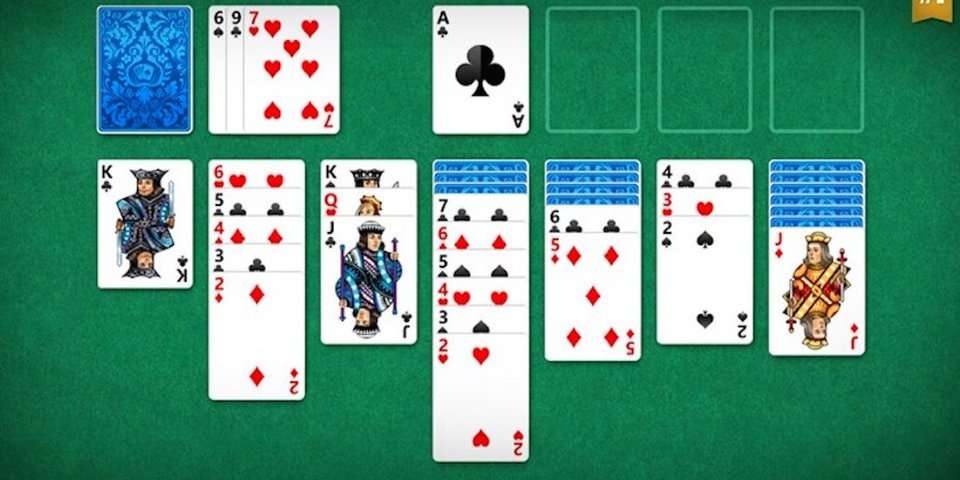Microsoft Studios If you thought that old-school Microsoft games like Solitaire and Minesweeper were just added because they were easy to program — or some engineer was obsessed with them — you're dead wrong, according to Mental Floss.
It turns out that both games were reportedly designed to teach people the skills they would need to use these newfangled personal computers.
Take Solitaire for instance, which was rolled out in 1990. Sure, it was convenient that it was a game that could be played with one person, but the real purpose was to teach people how to use a mouse. Mental Floss says Microsoft needed to convert people who were used to command lines into "drag and drop" aficionados. What better way to do it than to get them to drag and drop cards for hours on end?
And it worked, destroying countless hours of worker productivity in the process.
Minesweeper, released in 1992, was also designed to help users acclimate to a mouse — but this time to the concept of "right clicking" and "left clicking." Microsoft needed these actions to be instinctive, and, again, what better way to do so than to make users do it over and over again while they thought they were just having a good time.
In 2012, Microsoft released Windows 8, which didn't have the classic games. People could download them, but Solitaire and Minesweeper didn't come bundled.
But perhaps Microsoft has realized its mistake because it is bringing back Solitaire for Windows 10. Mental Floss writer James Hunt's theory is that Microsoft is bringing back Solitaire for another instructional reason: How to use the Windows Store.
Although it could also be that a generation used to having the comfort of a familiar lo-fi game on every PC they've ever owned missed it and complained. But, unfortunately for Solitaire fans, Microsoft is continuing its Windows 8 tradition of having the game be ad-supported. So if you want to play ad free in Windows 10, you'll have to pay $1.49 a month.
If you want to learn what Hearts and FreeCell were designed to do, read about them over at Mental Floss.

jkopplin on July 24th, 2018 at 21:12 UTC »
It's amazing how people younger than 40 or even 50 take the mouse for granted. About a decade ago I worked overnights at a hotel. The head housekeeper would come in right before I left in the morning. She was an older lady and didn't really know how to use a computer even though she had to run reports in the morning. Which rooms were checking out, which were stayovers, etc.
Luckily for her, we still had an ancient DOS-based computer system with no mouse. She didn't really know what she was doing but she had a slip of paper that told her what sequence of keys she needed to push to get her report. It was like someone learning lines for a play in foreign language phonetically. But she could do it.
Then they finally updated our hotel software to a Windows based system. It was simple for most of us. All big icons and a few normal drop-down menus.
I worked with that woman for months. She never learned how to navigate a graphic interface or accurately maneuver a mouse.
I made a manual for her with screenshots, showing her exactly where to click and when. I practiced with her every morning.
Eventually I just gave up and added preparing the morning reports for housekeeping to my job duties because, frankly, it was easier.
heraldtaliaw on July 24th, 2018 at 18:47 UTC »
Nice try Windows but jokes on you. My parents still don't know how to use the mouse...and that is all they did on the puter back in the day.
itty53 on July 24th, 2018 at 18:27 UTC »
Microsoft tried this subversive little trick again with Windows 10 and the introduction of the App store.
They purposefully left solitaire off Windows 10 so users would have to go to the app store to find it, thereby familiarizing them with the app store. Smart, right?
This backfired because Microsoft didn't have very great vetting processes for their app store. A hundred different nefarious types built their own Solitaire games and loaded them up with malware, and put them on the app store. Millions of users downloaded them.